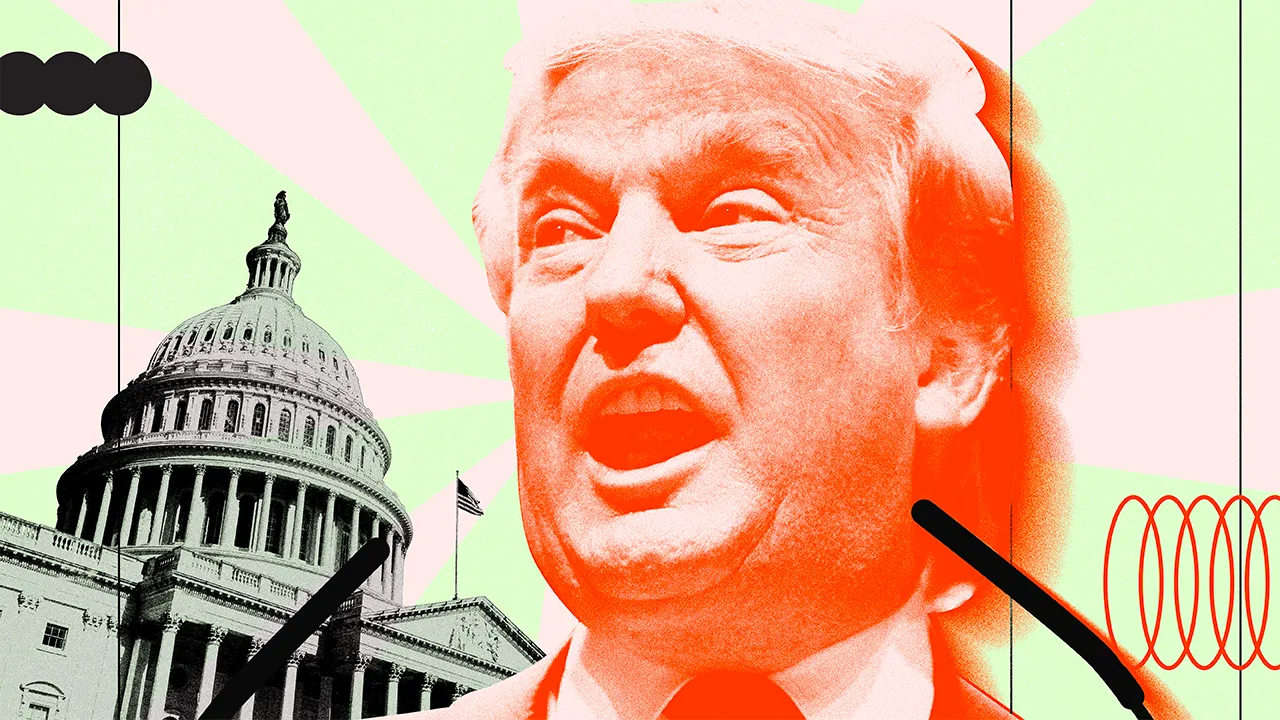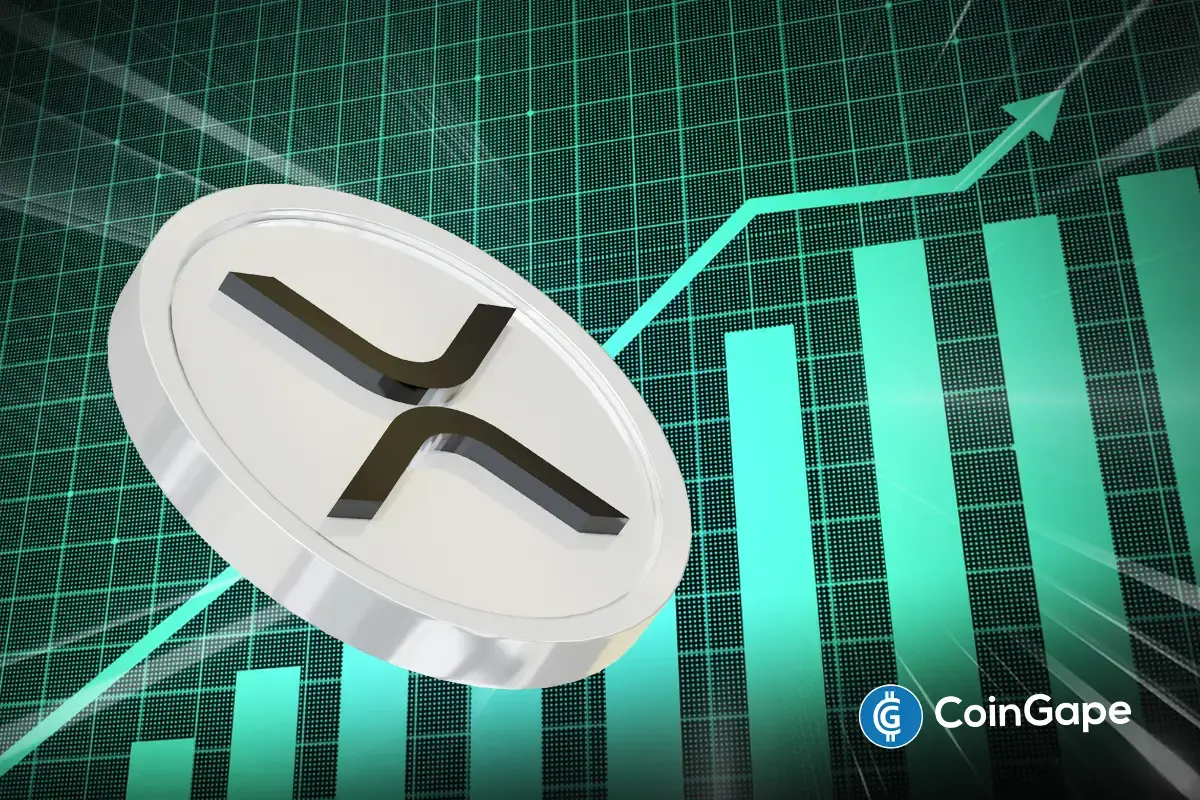Regulation
Binance CEO Richard Teng Refutes $26B Revenue Claim In Nigeria Lawsuit

Binance CEO Richard Teng has issued a powerful response to the Nigerian government’s allegations regarding the company’s operations in the country. The ongoing legal battle has seen Binance and two of its executives, Nadeem Arjarwalla and Tigran Gambaryan, face charges of money laundering and tax evasion. The case, initially scheduled for October 11, has now been brought forward to September 2 following requests from the defense.
Binance CEO Richard Teng Calls Out Nigerian Govt’s Misreporting
The Nigerian government claims that Binance earned $26 billion in revenue from its activities within the country in 2023. Teng, however, firmly denied this accusation ahead of the September 2 hearing in Binance vs. Nigeria lawsuit. He clarifying that the figure cited by the Nigerian authorities is misleading. “The Government has said that we made $26B in revenue from Nigeria in 2023. That is not the case,” Teng stated in an official statement.
He explained that the exchange’s transaction volume in Nigeria for 2023 was $21.6 billion, which is much less than the claimed revenue generated in the region. Hence, the actual revenue generated has to be much lesser. The Binance CEO further elaborated, “Our actual revenue is based on charging a small percentage of transaction fees, and we are proud to offer our users some of the lowest fees of any exchange globally.”
Teng Dismisses Claims Tied To Naira Devaluation
The case against the crypto exchange also includes allegations that the company’s activities contributed to the depreciation of the Nigerian Naira. Teng refuted these claims, attributing the naira’s decline to broader macroeconomic factors rather than Binance’s operations. “Another claim made by the Nigerian government was that Binance was responsible for its currency’s decline, which is not backed up by facts,” the Binance CEO asserted.
Teng provided a detailed account of the Naira’s exchange rate movements, noting that between 2021 and 2022, the naira traded within a relatively narrow range. He pointed out that the most significant drop occurred after the Nigerian government ended the Naira’s currency peg in June 2023, leading to a dramatic depreciation.
“The Naira traded at a recent low of USD1:1,660 on July 31, 2024, representing a 50% decline from the start of 2024,” Teng said. He emphasized that this downward trend continued even after the exchange ceased offering its peer-to-peer (P2P) services in the country in February 2024.
Tigran Gambaryan’s Health Worsens
A significant aspect of the controversy involves the detention of Tigran Gambaryan. He is Binance’s Head of Financial Crime Compliance, who has been held in Nigeria since February. Binance CEO Teng expressed deep concern over Gambaryan’s deteriorating health and the Nigerian government’s refusal to provide adequate medical care or allow him access to legal counsel.
“Tigran’s physical and mental conditions have deteriorated rapidly, and his situation is now more dire than ever. He is in severe pain and unable to walk due to a herniated disc,” Teng revealed. The CEO also condemned the Nigerian government’s alleged failure to comply with court orders demanding the release of Gambaryan’s medical records and the denial of access to his U.S. consulate representative.
Teng characterized these actions as “inexplicable” and appealed for Gambaryan’s release on humanitarian grounds. “I appeal once again for the Nigerian government to allow him to go home to his family on humanitarian grounds so that he can seek the appropriate medical treatment in the US,” Teng urged.
In his statement, the Binance CEO called on the U.S. government to intervene and designate Gambaryan as one of its “unlawfully detained” citizens overseas. He also appealed to the international community to voice their concerns about the Nigerian government’s actions.
“People globally should add their voices and concerns, convincing the Nigerian government such unilateral action without a strong basis will be detrimental to the long-term economic development and well-being of the country,” he said.
Disclaimer: The presented content may include the personal opinion of the author and is subject to market condition. Do your market research before investing in cryptocurrencies. The author or the publication does not hold any responsibility for your personal financial loss.
Regulation
USDC Issuer Circle Set To File IPO In April, Here’s All

USDC issuer Circle is reportedly set to file its initial public offering (IPO) in April as part of the firm’s plans to finally go public. The stablecoin issuer is allegedly already working with top financial institutions to achieve this move.
Circle To File IPO In Late April
According to a Fortune report, Circle is looking to file its IPO in late April, although the listing period remains uncertain. The report noted that when a company files to go public, its shares usually begin trading four weeks later, indicating that the listing could occur in May. However, there is also a scenario where the IPO process could drag on for months.
The stablecoin issuer is reportedly working with investment banks JPMorgan Chase and Citi to achieve its long-anticipated IPO. The firm had previously tried to go public in 2021 under a SPAC arrangement with a shell company.
The US SEC failed to sign off on this arrangement back then, and the company eventually scrapped these IPO plans by the end of 2022 when the crypto exchange FTX collapsed and the broader crypto market experienced a downturn.
Revelation about Circle’s IPO plans comes just days after the stablecoin issuer partnered with NYSE’s parent company to explore USDC’s use in traditional finance (TradFi). Meanwhile, the USDC stablecoin recently launched in Japan following approval from the country’s regulator. Notably, USDC is the first and only global dollar stablecoin approved under Japan’s stablecoin framework.
An Easier Path Now For The Stablecoin Issuer
Circle will likely face less resistance for its IPO plans under the current SEC administration. Under acting Chair Mark Uyeda, the Commission has shown its willingness to work hand in hand with crypto firms, which was missing under Gary Gensler’s administration.
US SEC Chair nominee Paul Atkins has also shown his willingness to change the approach that Gensler’s administration adopted towards crypto firms. During his nomination hearing, the SEC Chair nominee promised to prioritize providing regulatory clarity for the industry.
Circle’s IPO listing would be the biggest since the top crypto exchange Coinbase went public in 2021. Interestingly, Coinbase owns an equity stake in the crypto firm.
The firm’s USDC is currently the second-largest stablecoin by market cap, only behind Tether’s USDT. The stablecoin industry is heating up as more financial institutions look to develop their own stablecoin.
Donald Trump’s World Liberty Financial recently revealed plans to launch its USD1 stablecoin, while asset manager Fidelity is also considering doing so.
Disclaimer: The presented content may include the personal opinion of the author and is subject to market condition. Do your market research before investing in cryptocurrencies. The author or the publication does not hold any responsibility for your personal financial loss.
Regulation
Japan Set To Classify Cryptocurrencies As Financial Products, Here’s All

Cryptocurrency investors in Japan are bracing for impact following a plan to reclassify digital assets as financial products. While the plan has elicited excitement from cryptocurrency enthusiasts in the Far East, the ambitious plan will have to scale several legislative hurdles.
Japan Targets Reclassification Of Cryptocurrencies As Financial Products
According to a report by Nikkei, Japan’s Financial Services Agency (FSA) is inching toward classifying cryptocurrencies as financial products. Per the report, the FSA intends to achieve the reclassification via an amendment to the Financial Instruments and Exchange Act.
Currently, digital assets in Japan are considered crypto assets conferred with property rights and seen as payment means. Under the FSA’s plans, cryptocurrencies in Japan will be treated as financial products in the same manner as traditional financial products.
The FSA says it will adopt a slow and steady approach toward the reclassification, carrying out “a private expert study group” to test the waters. If everything goes according to plan, the FSA will submit the amended bill to Parliament in early 2026.
The classification of cryptocurrencies as financial products will have far-reaching consequences for the local ecosystem. Experts say treating cryptocurrencies as financial products will bring Japan closer to a crypto ETF launch amid a changing regulatory landscape.
Furthermore, the move may lower current cryptocurrency taxation for local investors since existing capital market rules will apply to the asset class.
A Fresh Bill For Crypto Insider Trading Is Underway
Apart from the reclassification, the FSA disclosed plans for new legislation against insider trading. The move flows treating cryptocurrencies as financial products and will strengthen existing investor protection rules.
“It is a direction to establish a new insider trading regulation that prohibits trading based on unpublished internal information,” said the FSA. “We will develop laws to prevent unfair transactions.”
However, Japan’s cryptocurrency scene is heating up to a boil, driven by local and international players. Last week, stablecoin issuer Circle secured approval from the FSA for USDC with top exchanges set to list the stablecoin.
Japan’s Metaplanet has tapped Eric Trump to join its Strategic Board of Advisors as it continues to load up Bitcoin.
Disclaimer: The presented content may include the personal opinion of the author and is subject to market condition. Do your market research before investing in cryptocurrencies. The author or the publication does not hold any responsibility for your personal financial loss.
Regulation
Kentucky Governor Signs Off On ‘Bitcoin Rights’ Bill, Strengthening Crypto Protections


In what is being dubbed a major development in the crypto regulation space, the Governor of the US state of Kentucky, Andy Beshear, has signed the ‘Bitcoin Rights’ bill into law. The law promises to safeguard protections for Bitcoin (BTC) users.
Bitcoin Rights Bill Comes Into Effect
Crypto regulations continue to evolve under pro-crypto US President Donald Trump’s administration. In the latest development, Kentucky has become the newest state to enshrine protections for digital asset users.
In an X post published on March 24, crypto advocacy group Satoshi Action Fund announced that Governor Beshear had signed the much-anticipated Bitcoin Rights bill into law. The post stated:
The right to self-custody, run a node, and use of digital assets is now protected for millions of Americans without fear of discrimination.
The bill was first introduced to the Kentucky House by Rep. Adam Bowling on February 19. According to the bill’s description, it seeks to safeguard users’ rights to use digital assets and self-custody wallets. Additionally, it aims to prohibit local zoning changes that discriminate against crypto mining operations.
The legislation outlines guidelines for running a digital asset node and excludes digital asset mining from money transmitter license requirements. It also clarifies that crypto mining or staking is not considered an offer or sale of securities.
On February 28, the bill passed Kentucky’s House of Representatives with a unanimous vote of all 91 representatives in favor. It later passed the Kentucky Senate on March 13, receiving backing from all 37 senators.
Kentucky’s proactive stance toward cryptocurrencies isn’t new. Earlier this year, the state became the 16th US state to introduce legislation seeking to create a Bitcoin strategic reserve.
Meanwhile, neighboring state Arizona is also joining the crypto movement. A recent X post by Bitcoin Laws revealed that Arizona’s House Rules Committee has passed two Bitcoin reserve bills — SB1373 and SB1025. These bills will now head to a full floor vote.
Renewed Optimism Under Trump Administration
Following Trump’s victory in the November presidential election, cryptocurrency regulations in the US are evolving rapidly, with many states introducing legislation aimed at strengthening their digital asset ecosystems and attracting crypto businesses.
Positive changes in crypto regulations are encouraging industry businesses to expand. For instance, leading crypto trading platform Coinbase recently announced plans to hire 1,000 employees in the US.
The Trump administration has also witnessed several lawsuits being dropped against major crypto entities, including Kraken, Coinbase, Gemini, and others. At press time, Bitcoin trades at $87,399, down 0.2% in the past 24 hours.

Featured Image from Unsplash.com, chart from TradingView.com

Editorial Process for bitcoinist is centered on delivering thoroughly researched, accurate, and unbiased content. We uphold strict sourcing standards, and each page undergoes diligent review by our team of top technology experts and seasoned editors. This process ensures the integrity, relevance, and value of our content for our readers.
-

 Market21 hours ago
Market21 hours agoCoinbase Tries to Resume Lawsuit Against the FDIC
-

 Altcoin21 hours ago
Altcoin21 hours agoCharles Hoskinson Reveals How Cardano Will Boost Bitcoin’s Adoption
-

 Market20 hours ago
Market20 hours agoHedera (HBAR) Bears Dominate, HBAR Eyes Key $0.15 Level
-

 Altcoin24 hours ago
Altcoin24 hours agoElon Musk Rules Out The Use Of Dogecoin By The US Government
-

 Ethereum22 hours ago
Ethereum22 hours agoEthereum May Have To Undo This Death Cross For Bull’s Return
-

 Market22 hours ago
Market22 hours agoBlackRock’s Larry Fink Thinks Crypto Could Harm The Dollar
-

 Altcoin22 hours ago
Altcoin22 hours agoEthereum Bitcoin Ratio Drops to Record Low, What Next for ETH?
-

 Market19 hours ago
Market19 hours agoThis is Why PumpSwap Brings Pump.fun To the Next Level



















✓ Share: